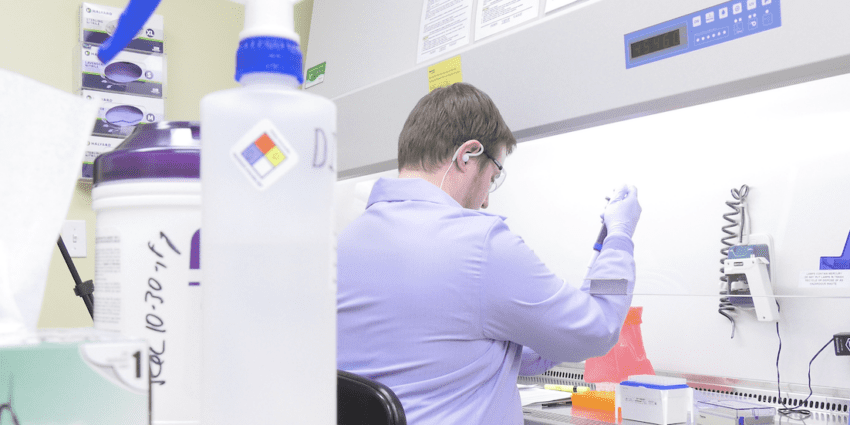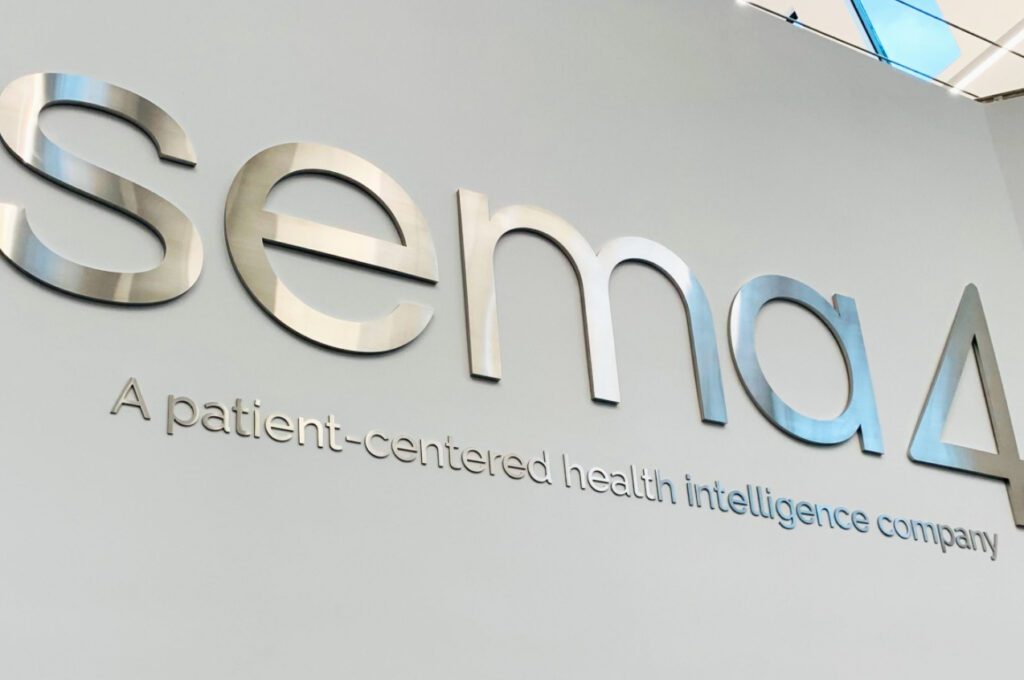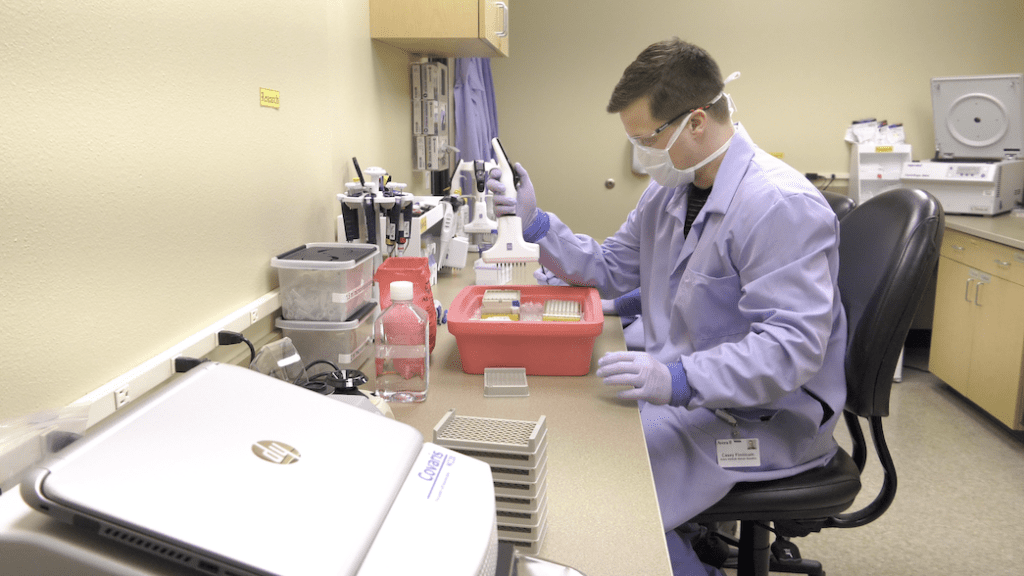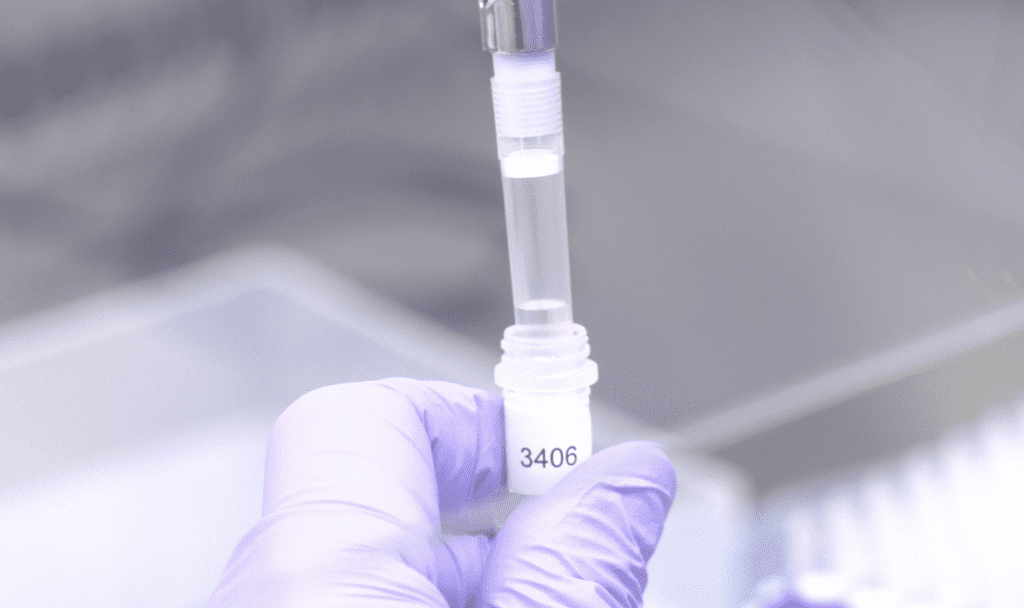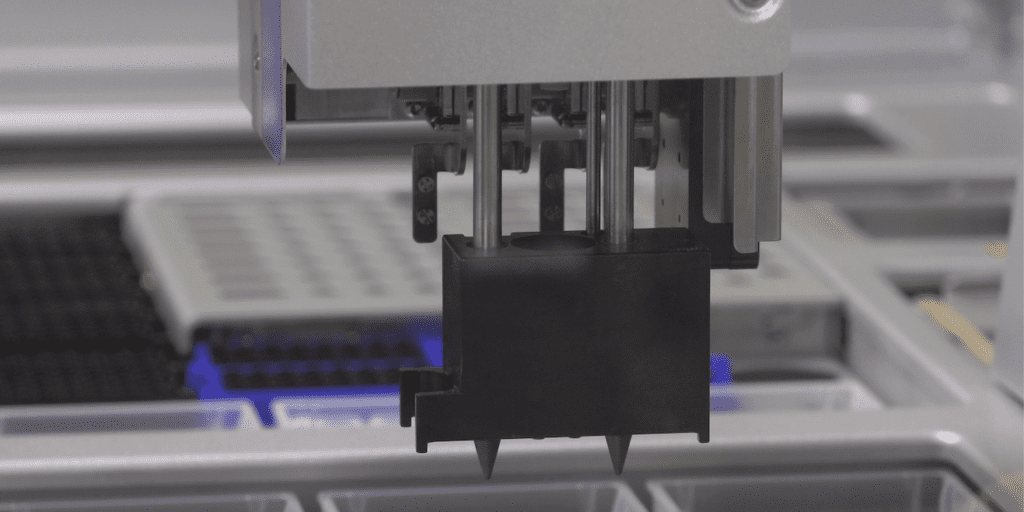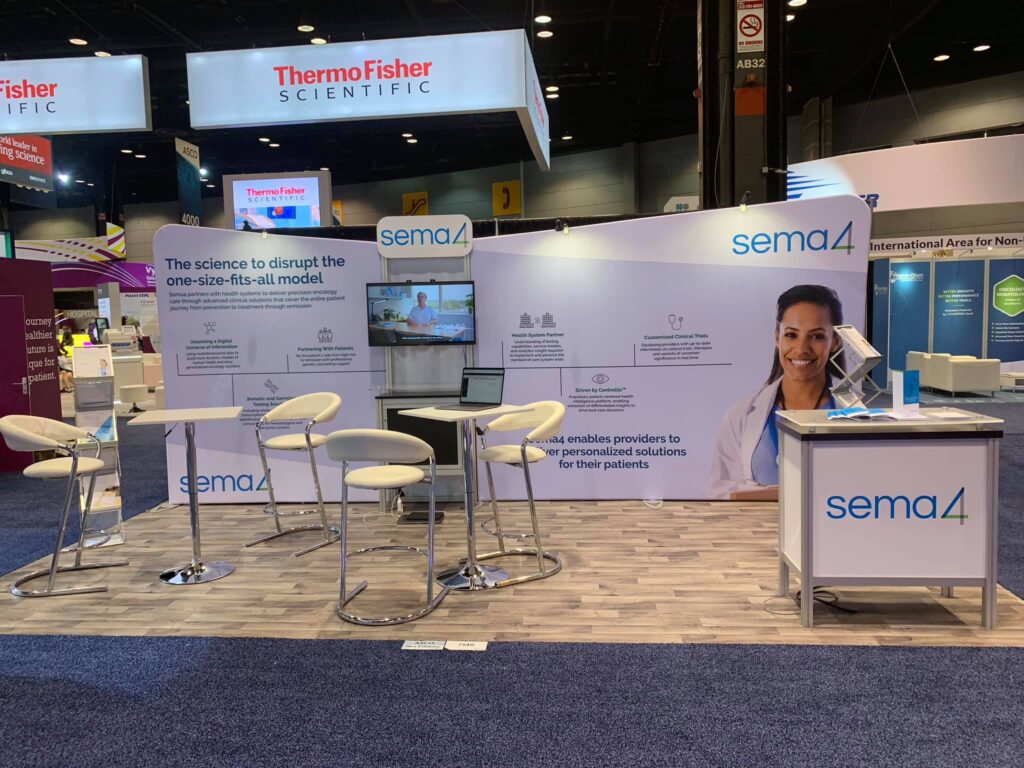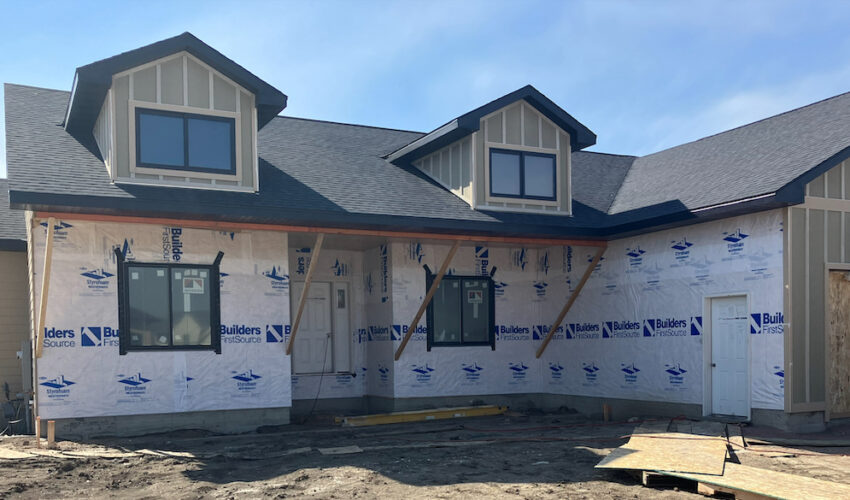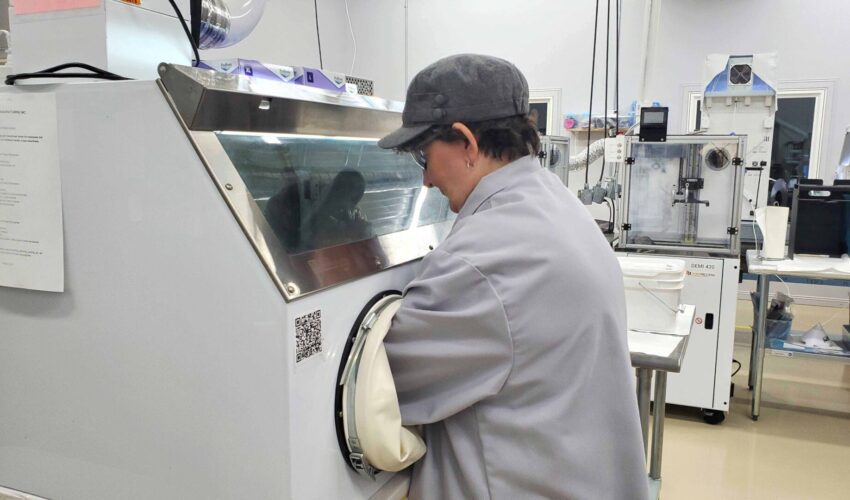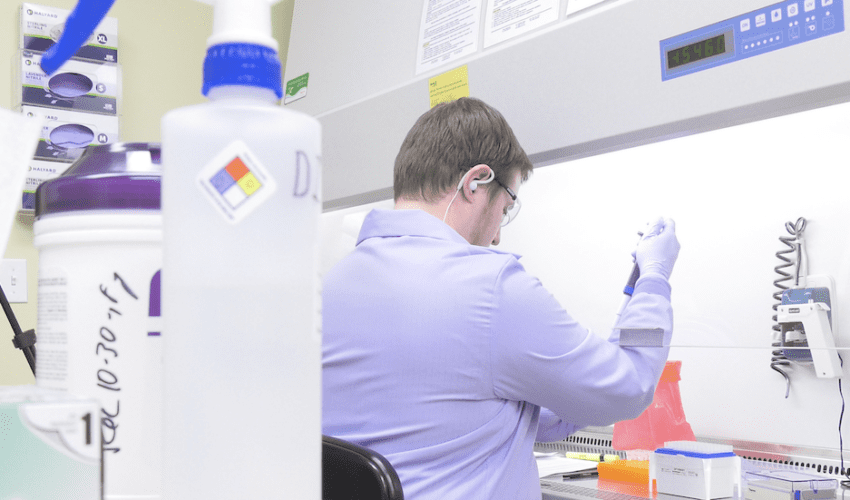Avera joins with East Coast health intelligence company to advance genetics-driven cancer treatment
July 13, 2022
This paid piece is sponsored by South Dakota Biotech.
The difference between looking at some genes involved in fighting cancer versus every gene involved in fighting cancer can be life-changing for the patient involved.
That’s how testing being conducted by Connecticut-based Sema4 works. Now, thanks to a relationship between Sema4 and Avera Health, South Dakota cancer patients are beginning to be offered that comprehensive test. And the resulting data is helping inform a broader effort to advance cancer treatment for all.
“The Avera health system is a very progressive, very cutting-edge health system,” said Dr. William Oh, chief medical officer at Sema4. “Their strategy is that they work with industry partners, they bring in new ideas and new approaches earlier than many health systems, certainly at a community-based level but compared to academic health centers too.”
Oh has the experience to make that endorsement. His career has included work at the Dana-Farber Cancer Institute and Mount Sinai Health System, which spun out Sema4 as its own company in 2017.
“We have a testing portfolio we think is best-in-class,” Oh said. “It looks at every single gene that might have actionability within a cancer cell, which is broader than the more common panel used to test cancer at this point.”
More common genetic testing in cancer care might examine 500 related genes, for instance.
“We’re looking at more than 18,000,” Oh said. “And when you do that, you use artificial intelligence on many levels. We have AI components on the genomic side and on the clinical data side.”
That makes Avera’s approach to care innovative, he said.
“Some health systems are followers,” he said. “Some don’t want to take the risk because there might be unknowns about what to do with the genomic information, in this case, or resistance from the patient population. But we recognize in cancer that the adoption of genomic information remains inadequate. People are not being tested enough, the data is not being used quickly enough and incorporated into the practice, and as a result, certain populations aren’t getting the access to the cutting-edge care they need.”
At Avera, genomic testing has been done for nearly a decade — ever since it became commercially viable.
“We were looking to collaborate and build a bigger, more cutting-edge process and push the envelope,” said Casey Williams, Avera’s chief scientific officer and executive director of cancer research. “We have six cancer centers in six different locations in South Dakota and Minnesota, so we need to be able to scale this testing to all six locations, but how do we do that with the right partner?”
Avera compared all molecular testing companies side-by-side and then reached out to explore opportunities with Sema4, he said.
“We felt like this is what we want to do – work with someone to help our patients and our health system be better.”
It resulted in the Avera/Sema4 Oncology and Analytics Protocol, or ASAP study, a five-year commitment to population health for precision oncology care.
The ASAP study, which started with a soft launch in November 2021, will enroll up to 3,000 patients a year, including those with cancer and those at risk for developing cancer. Study participants will receive genomic sequencing of their tumor, and hereditary cancer and pharmacogenomics testing to identify targeted, personalized treatment options.
Sema4 and Avera will use this clinical and genomic data to improve the understanding of the molecular characteristics in all stages of cancer patients to advance precision oncology treatment.
So far, approximately 250 patients have participated and already have seen positive changes in their treatment because of the knowledge gained through genetics, Williams said.
“And every patient has the option for a multidisciplinary review; Dr. Oh is on multiple tumor boards for our patients,” he said. “We review the data on our own, but if we feel there’s a more in-depth discussion required, we bring in a larger group.”
That also can lead to patients gaining access to cutting-edge drug therapies.
“The pharmaceutical industry is very aware of this work, and we’re continuing to work with them to bring new therapies here,” Williams said. “We’re able to show them we have the targeted populations they’re seeking because we have the access to testing to demonstrate it.”
While data resulting from the testing is shared for research purposes, it’s treated with extreme sensitivity, Oh said.
“Many patients are supportive of sharing this data because when it’s pooled it can have broad implications for future care,” he said.
Going forward, “we’d like to be able to offer it to everyone, including patients who are at risk and those who are not cancer patients,” Williams said. “We think this is a few years ahead of where many are and agree it should be the standard of care. We want to help lead how it’s being developed in a place like Sioux Falls and continuing across our footprint.”
As the relationship between Avera and Sema4 grows, there’s potential to support needed laboratory work from Sioux Falls, he added.
“We believe that’s a big way we will be able to contribute,” he said. “We can’t hire 200 Ph.D. computational biologists in Sioux Falls, or 250 genomics experts, that’s where Sema4 provides scale. But we do other things really well, and one is the lab side, so if we’re able to move the process forward more efficiently from Sioux Falls, we see multiple benefits to doing that, including growing industry jobs here.”
The relationship is significant to show how South Dakota bioscience leaders can collaborate industrywide, said Joni Ekstrum, executive director of South Dakota Biotech.
“Not only is this bringing cutting-edge data that leads to new treatments for cancer patients in our state, but the implications of this work are huge from the perspective of workforce,” she said. “Top talent in this field wants to be working on initiatives such as this one, and we’re excited to see where this relationship leads.”
The work between Avera and Sema4 also is gaining notice in the health care field. They presented on the study in June at the American Society of Clinical Oncology in Chicago and are demonstrating on behalf of Amazon Web Services at an industry event this month, focusing on its use of the cloud.
“We as a company could never do this without the collaboration of a health system,” Oh said. “It doesn’t really matter who does the test, it’s understanding what the information means that comes from the testing and what happens from there, and that’s why Avera is such an ideal partner.”

